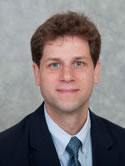| Abstract: |
Ultra-rare sarcomas (URS) and ultra-rare cancers (URC) represent a unique challenge in oncology due to their rarity, heterogeneity, and the severe unmet clinical needs of affected patients. In 2024, the European Medicines Agency (EMA) and the European Organisation for Research and Treatment of Cancer (EORTC) convened two multi-stakeholder workshops, bringing together regulators, clinicians, researchers, and patient advocates. These workshops aimed to explore innovative strategies for treatment development and establish a framework for future collaboration. Key issues were discussed, including the scarcity of biological and clinical data, major barriers in conducting randomized trials, and limited pharmaceutical investment. A key outcome was the unanimous commitment of all stakeholders, including regulatory agencies such as EMA and the U.S. FDA, to work together towards pragmatic solutions. Participants recognized the necessity of flexible regulatory approaches, alternative trial designs, and meaningful endpoints tailored to ultra-rare conditions. The workshops also highlighted the importance of global collaboration, early regulatory engagement, and leveraging existing mechanisms like orphan drug designation and conditional approvals. The discussions emphasized that while scientific rigor must be upheld, regulatory frameworks must adapt to the specific challenges posed by URS. Stakeholders pledged to maintain open dialogue, share expertise, and develop innovative infrastructures to accelerate progress. This collaborative commitment marks a critical step forward in addressing the high unmet needs of URS. By fostering a unified effort among diverse stakeholders, the workshops established a model for advancing treatments in other URC, prioritizing patient outcomes while navigating the complexities of drug development for these challenging diseases. © 2025 Elsevier B.V., All rights reserved. |



